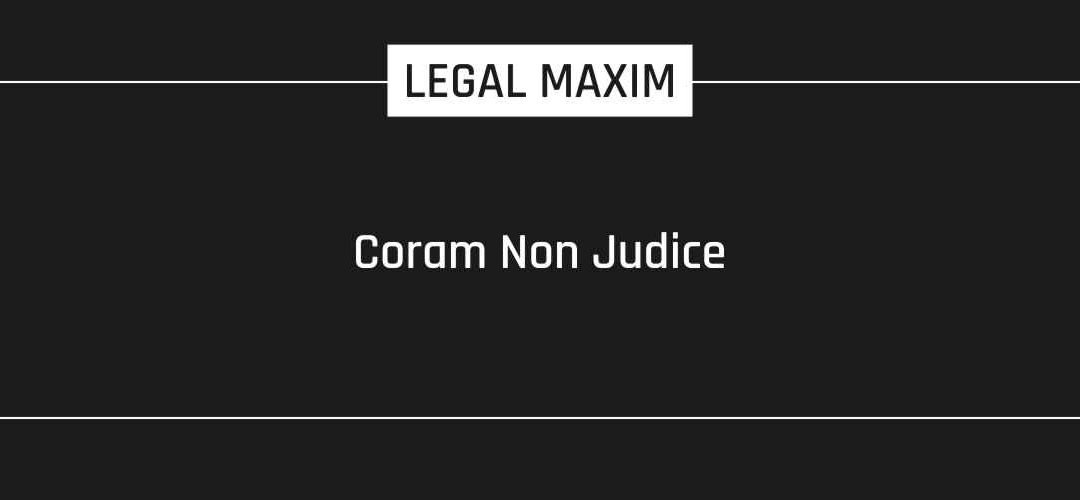Literal Meaning
Not before a judge
Origin
Medieval Latin
Explanation
When a suit is brought and determined in a court which has no jurisdiction in the matter, it is said to be coram non judice and the judgment thus delivered is considered void. It refers to those proceedings of a court of law which take place before a judge who is not competent to decide or before the court which has no jurisdiction over the case.
In other words, a decree passed by a Court without jurisdiction over the subject matter or on other grounds which goes to the root of its exercise of jurisdiction, lacks inherent jurisdiction is a coram non judice. A decree passed by such a court is a nullity and is non-est. Its invalidity can be set up whenever it is sought to be enforced or is acted upon as a foundation for a right, even at the stage of execution or in collateral proceedings.
Illustration
A court having no jurisdiction to adjudicate over the a fresh appeal despite the fact that the order passed by the court is in standing of it as an appellate authority has achieved finality, the order passed by such court on the basis of illegal or impartial proceedings would be termed as coram non judice.
Thus, a judgment which is a result of bias or want of impartiality is null and void and the trial is considered to be coram non judice.
Case Laws
In M/S. National Highway Authority vs. M/S. B. Seenaiah & Company, the Calcutta High Court held that “if a court/tribunal inherently lacks jurisdiction, the acquiescence of a party should not equally be permitted to perpetrate and perpetuate the defeating of the legislative animation. The court cannot derive jurisdiction apart from the statute. A decree without jurisdiction is a nullity. It is a coram non judice; when a special statute gives a right and also provides for a forum for adjudication of rights, the remedy has to be sought only under the provisions of that Act and the common law court has no jurisdiction.”
In the Industrial Credit vs. Sharad Khanna And Others, the Bombay High Court held that “If a Court were to make a decree contrary to the law as laid down by the Full Bench, such a decree is not merely erroneous, but one without jurisdiction, made by a corum non judice, and, hence, the decree would be a nullity or non est. Such a decree, made by a Coram non judice, can be challenged, wherever and whenever it is sought to be relied upon.
